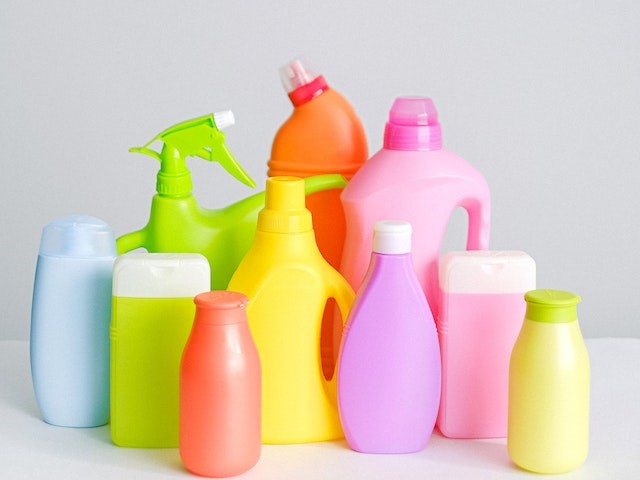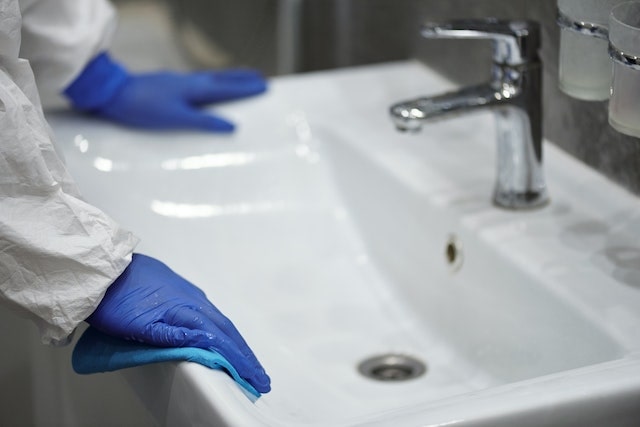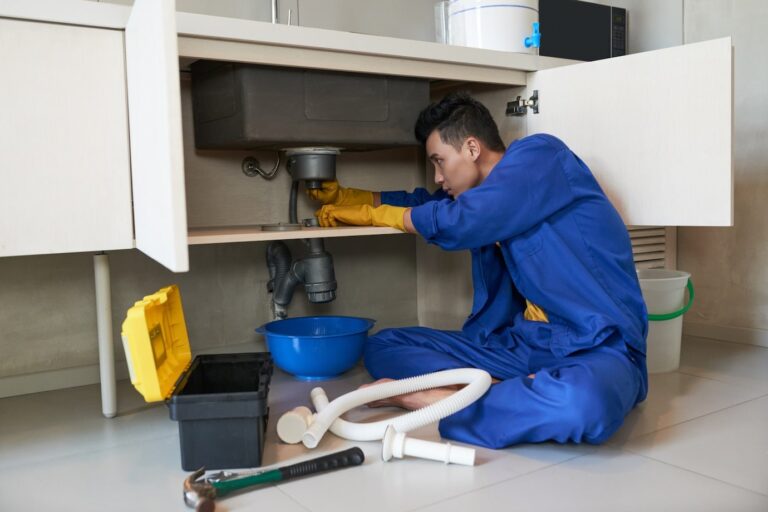- Free Estimates

Almost every homeowner has chemical drain cleaners under their sinks, prepping them with stubborn clogs in their plumbing system. But as convenient as these cleaning agents are, they aren’t the best for the environment.
This post gives you a more in-depth look at how chemical drain cleaners work and their risks to your plumbing system and overall safety.
Chemical drain cleaners come in two variations: caustic and oxidizing:
Chemical caustic drain cleaners combine hydroxide ions and alkaline chemicals. As their ions and properties mix, they emanate excess heat, transforming the stubborn clogs in your plumbing system into a smoother, soapy substance.
Chemical oxidizing drain cleaners combine several things to eliminate clogs. For instance, some use nitrate to dissolve organic materials within these blockages, all while releasing gas and heat. With these two, you’ll be able to remove stubborn clogs like hardened grease in your plumbing system.

As powerful as chemical drain cleaners are, they might cause dangerous chemical reactions, unlike your regular sprays that de-grease your stoves or liquid cleaners that clean your toilets. Think about it: all substances capable of melting organic materials or creating excess heat fast aren’t something you’d want to get all over your face or body. Despite this, accidents with chemical drain cleaners still happen annually.
Based on a retrospective review, chemical drain cleaners cause over 3,000 annual injuries in the USA alone. And a third of those involved suffered from cutaneous burns, which can be extremely painful as it causes damage to the skin.
Out of the many hazardous ingredients present in chemical drain cleaners, watch out for these two: concentrated forms of sodium hydroxide and sulfuric acid.
Sodium hydroxide is an incredibly corrosive substance. Although harmless in its solid state, it can excrete excess heat when dissolved in water. And exposure to this chemical can lead to skin, eye, and mucous membrane injury. It can cause more severe issues such as skin and eye burns alongside extreme hair loss when untreated.
Sulfuric acid is corrosive and can burn most organic substances, including you. When mixed with hot water, sulfuric acid can become incredibly hot, leading to severe injuries when coming in contact with your eyes or skin.
Besides posing a risk to your safety, chemical drain cleaners may also damage your plumbing system with repetitive use. Over time, the acidic substances in these cleaning agents corrode the pipe material. And this can occur faster if the chemical drain cleaner fails to remove the clogs.
If the chemical drain cleaner doesn’t remove the clogs, you’ll have to face more issues. For one, you’ll still have the blockage problem, and next, you’ll be dealing with a scorching and corrosive liquid on top of your plumbing system. And prolonged exposure to intense heat and acidic materials can weaken the pipe material, making it more vulnerable to leaking.

Professional drain cleaning is safer and more efficient in removing stubborn blockages, especially those jammed down in your drains.
Meanwhile, plumbers can clear your drains with a drain snake via a technique dubbed “cabling” or “snaking.”
If your property’s experiencing plenty of clogs and build-up within the drains and sewer line, hydro-jetting is another chemical-free alternative. And it’s generally ideal for the long-term. It involves using high-powered water jets and blasting the clogs away.
Call Sewer Cleaning Pros Staten Island for unbeatable drain cleaning services. Before you search for “roto services near me,” please consult with one of our many expert plumbers. Contact us today to schedule an appointment, or submit an online form and get a free estimate!